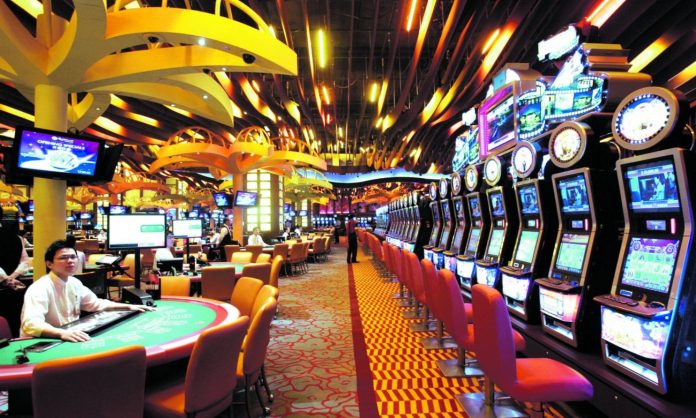In a scene straight from the early 1930s Las Vegas era of mobsters buying up casino licenses by the dozens, Cambodia is rapidly becoming a Chinese-ran casino pocket in Southeast Asia. Since gambling was legalized in recent years, the Cambodian government has sold 163 casino licenses in a bid for much-needed revenue.
However, the initial cash flow has been followed by the sting of increased violence, corruption, pollution, and general crime in the towns and neighborhoods where casinos have opened. Most notably, the Cambodian town of Sihanoukville is rife with rumors of Chinese Triad gangs ruling the roost.
The Wild East
Long viewed as a ‘lesser’ Asian country by outsiders, Cambodia has undergone rapid transformation in recent years. The once-sleepy backpacker’s backwater town of Sihanoukville has become a thriving casino mecca almost overnight. In a scene mirroring the rapid, chaotic development of the American West, Chinese investors, expat workers, and Triad gangs have all moved in to stake their casino claims.
Hundreds of casinos and hotel resorts have sprung up in Cambodia, most of which are owned and run by Chinese interests. Wealthy Chinese investors are happy to exploit the opportunity to carve out a piece of the gambling pie, as gambling is illegal in China. With expensive, overdeveloped cities like Macau reaching market saturation, Cambodia is an easy alternative for Chinese casino investment.
Cambodian Chinatown
Cambodians are not allowed to gamble in their own country, which creates small Chinatown sections of Cambodian cities operating Chinese-owned casinos for Chinese tourists. It is not forbidden for a Cambodian to work in a casino, but most of them do not speak Mandarin, the language required in these casinos.
As a result, Chinese investors and expat workers have moved into the Cambodian casino sector. And just as Italian-American mafia once preyed on the Italian quarters of big U.S. cities, the Chinese Triad has also set up shop in the region.
According to the South China Morning Post, there were over 16,000 Chinese nationals with work permits in Cambodia in 2018, many of whom were involved in casino construction projects. Cambodia’s Immigration Department has estimated that 78,000 Chinese reside in Sihanoukville alone, many without work permits.
The Violence
Reports of casino violence in Sihanoukville confirm the presence of Triad gangs, who have brazenly beaten Chinese casino visitors with little or no interference from Cambodian police. There was even a report of Triads murdering a Chinese national and throwing his body out of a moving car in broad daylight.
To allay any doubts that the Triads do in fact run the show in the Cambodian casino sector, they have even released a video claiming to own Sihanoukville. In the shocking video released through social media recently, 20 shirtless, tattooed men cheer on their apparent leader, who ranted in Mandarin to the camera, “Kampong Som, in the next three years, whether it will be safe or chaotic, is under my control.” Kampong Som is an alternative name for Sihanoukville.
While the shirtless, tattooed look is signature Triad gang style, Cambodian investigators also claim that there is a larger number of “Chinese mafia [who] disguise themselves to commit various crimes and kidnap Chinese investors … causing insecurity in the province,” reported Provincial Governor Lt. Gen. Yun Mi.
The Need for Law and Order
In addition to assault, murder, money laundering, and kidnapping, some casinos even operate without licenses while authorities struggle to force them to close. Another casino, the Jin Ding Hotel and Casino on Koh Rong Samloem Island, was ordered to shut down for gross pollution violations. Despite claims by locals and actual video footage of what appears to be raw sewage flowing from the casino directly into the sea, the resort refuses to shut down.
The need for rules and regulations in the casino sector is clear, and Cambodian officials are working on a solution to the problem. While the Cambodian casino cash flows freely, gambling legislation moves at a mere trickle. Regardless of the need to clean up the casino sector, officials can’t ignore the tax and license fees pouring in. The Cambodian government collected $46 million in casino tax and license fees in 2018, and expect that number to reach over $70 million in 2019.












